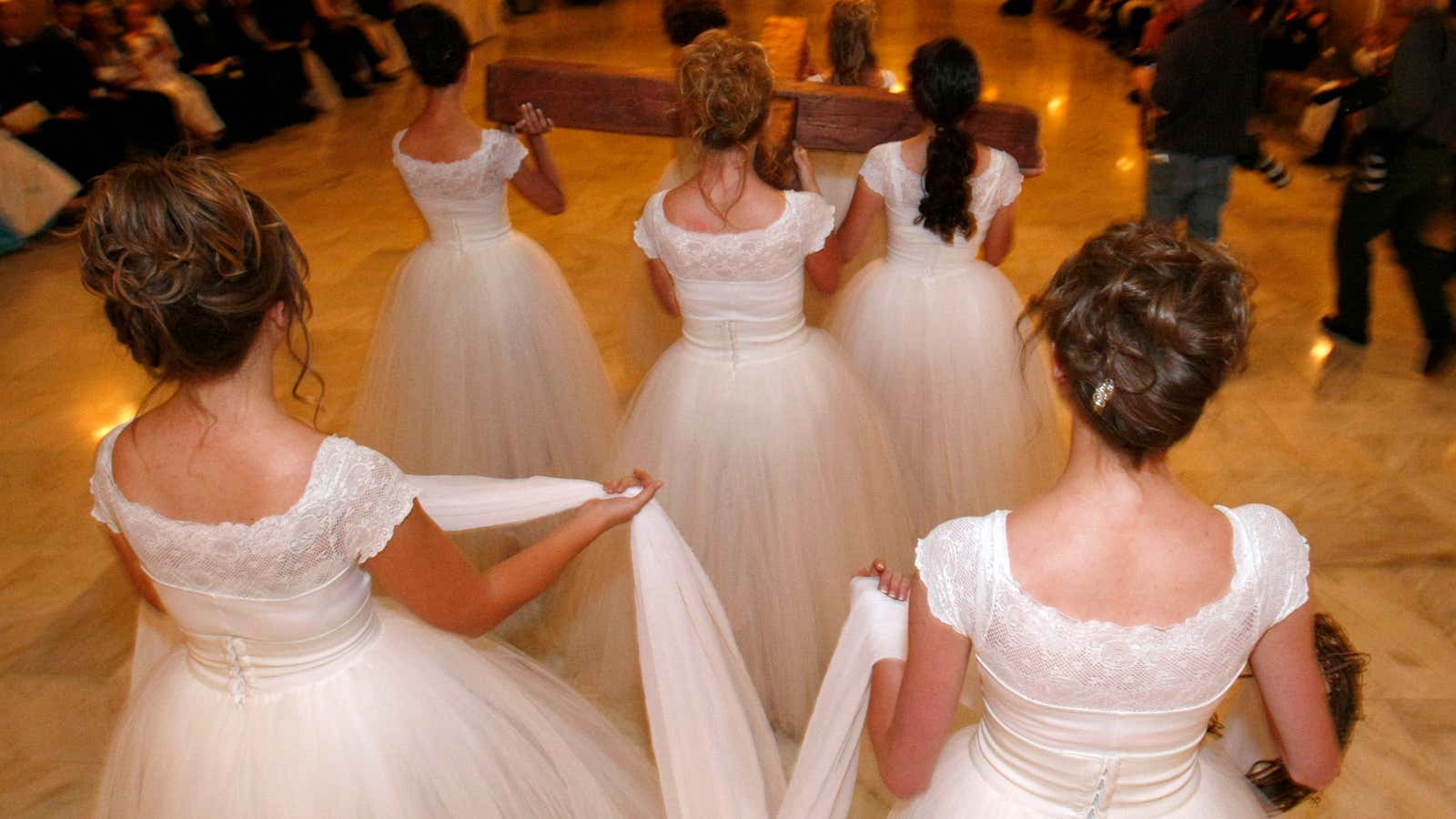On Friday, June 24th, 42-year-old Christy Byrd Sheats shot and killed her two daughters, 22-year-old Taylor and 17-year-old Madison. Police called to the scene found Sheats standing near the bodies of her daughters outside their Houston suburb home. An officer fatally shot her in the head when she refused to drop her .38 revolver.
For many people, the Sheats family murder may have slipped by unnoticed. June was an exceptionally bloody month in the US, with the massacre at Orlando’s Pulse Nightclub and the high profile shooting of pop-singer Christina Grimmie dominating headlines. A shooting in Chicago mere hours after the Sheats murder killed three and injured 17.
But for me, this particular tragedy stood out. Christy Byrd Sheats tanned at my neighborhood community swimming pool and attended my parents’ megachurch. Although I never met her in person, she now seems to symbolize everything that was wrong with my childhood in the Bible Belt. Having grown up amid stories of alcoholism, adultery, violence, mental illness, and molestation, I understand the artificiality that fuels a lot of what some might mistakenly interpret as Southern charm.
Of course, my experience is not a universal one. I know there are many people who loved growing up in the South, and that the region is often misunderstood and stereotyped, especially by those who live on the coasts. But I also know I am not the only Southern child who fled for more progressive, urban pastures as adulthood approached. Today, I occasionally cross paths with my fellow Bible Belt refugees. In coffeeshops, we swap stories of our dysfunctional families, relatives who plant themselves in church pews but would never apologize for the physical, mental, and emotional abuse they have inflicted on us. We bond over the post-traumatic stress of growing up in a conservative culture rotting away behind its Dixie facade.
Even in 2016, when much of the country (including the South) is becoming more and more racially diverse, conservative Southern culture is fighting to maintain an Anglo-Saxon, storybook-like image. The men are cowboys: masculine, brooding, loyal, and charming. They hold doors open for ladies and their arms out for the elderly. They work hard to provide for and protect their families. Southern belles are urged to always look their best. They know when to bring casseroles to their neighbors’ homes and the correct use of “bless your heart.” They serve sweet tea to every guest who steps on their front porch. They don’t underestimate the value a little eyelash fluttering.
Where I grew up, Southerners unconditionally respected their elders. They barbecued on Saturdays and worshipped on Sundays. Everyone is Christian. No one is (openly) gay. People of color do not mingle in white circles, and questioning this traditional structure is a cardinal sin.
Today, social media has become a great tool for manufacturing the ”perfect life,” whatever that might be. Christy Byrd Sheats’ Facebook page, with its emphasis on family, church and the Republican Party, seemed ripped straight from a country song. Interspersed with puckered selfies, she shared articles about how to be a proper Southern lady, as well as manifestos lashing out against president Barack Obama and gun control.
Every Southern traditionalist fears those who dare challenge cultural norms. Even something as simple as coming out of the closet, disobeying the wishes of an elder or threatening to leave the church can send shock waves through a traditionalist community. Because acknowledging difference also opens the door to change.
I have both witnessed and experienced what traditional Southern families will do to those who dare lay a hammer their facade. And at what cost? Southern conservatives preach kindness, chivalry, and ethical hierarchy and yet turn a blind eye to the poverty, obesity, teen pregnancy, homophobia, racism, sexism, and gun violence flourishing in their communities. The South has the highest concentration of Republicans and evangelical Christians, and some of the lowest rates of education and affordable health care. Sheats’s home state of Texas ranks 49th in state mental health care spending, yet Texas has no state firearms registry and no required wait time to purchase a firearm.
I believe that the South remains, for all of its attributes and political progress, a philosophically broken region. Presenting Southern traditionalists with hard, obvious facts is pointless. They are stubborn in their ideals and fanatical in their fictions. They fill the voids of reality and common sense with prayer and voluntary blindness. (This, for example, is why Southern legislatures appear incapable of acknowledging the clear correlation between gun availability and gun casualties.)
But forced conformity is not the same as community. And this type of intolerance, mixed with denial, breeds the most dangerous kind of hypocrisy.




